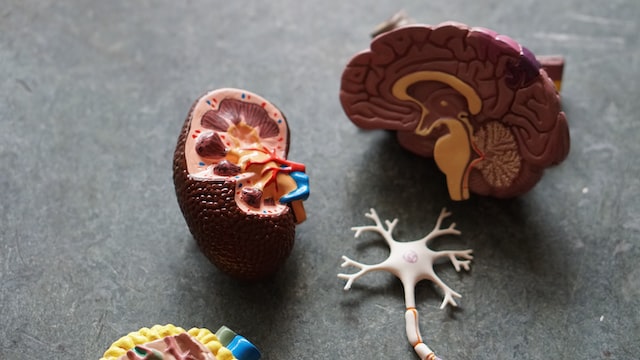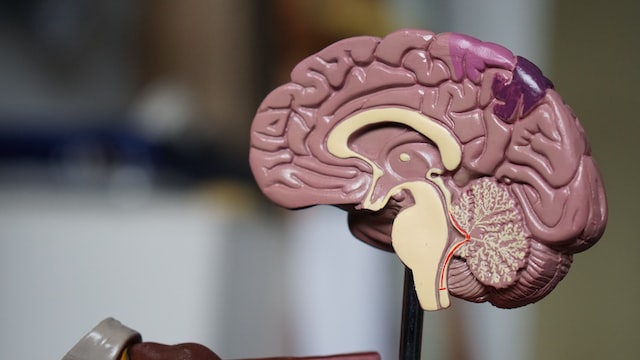On January 6, the US Food and Drug Administration (FDA) approved Leqembi (lecanemab-irmb) for the treatment of Alzheimer's disease (AD) through an accelerated approval pathway. Leqembi is the world's first clinically proven AD drug that slows memory and thinking loss by 27% over 1.5 years of administration, helping people in the early stages of AD to keep their minds sharp. Eisai and Biogen have partnered to develop Leqembi and have priced it at US$26,500/year. The pricing regulator (ICER) said the drug was "cost-effective" at between $8,500 and $20,600, above which it would be "difficult to meet the cost-effectiveness threshold".

Leqembi: non-curative drug to remove brain amyloid plaques early in AD
Although the exact cause of AD is not fully understood, it is broadly defined as a failure of brain proteins to function properly, which disrupts the function of brain cells (neurons), triggering a series of toxic events that lead to neuronal damage, loss of connectivity and eventual death. This type of damage usually starts in the area of the brain responsible for controlling memory, but the process begins years before the initial symptoms appear; subsequently, neuronal loss spreads to other areas of the brain in a somewhat predictable pattern; and finally, by the late stages of the disease, the brain has shrunk significantly. Therefore, it is extremely important to stop the abnormalities of brain proteins and reduce amyloid plaques in the early stages of AD.

Leqembi is a humanised immunoglobulin G1 (IgG1) anti-amyloid β (Aβ) monoclonal antibody that selectively binds to neutralise and remove soluble toxic β-amyloid aggregates. While many previous drugs targeting amyloid have failed to slow the rate of intellectual loss in patients, clinical studies have shown that intravenous administration of Leqembi every other week can remove amyloid from the brain. pathway to approve the drug for the treatment of AD.
01 Leqembi meets all key clinical secondary endpoints
Study 201 is a multicentre, randomised, double-blind, placebo-controlled, parallel group design study of 856 patients with mild cognitive impairment (MCI) due to AD or mild AD dementia. Changes in brain amyloid plaques were measured by PET and assessed by composite standardised uptake value ratio (SUVR) at weeks 53 and 79 in subgroups of patients and were used as endpoints to support accelerated approval.

Results found that Leqembi reduced brain amyloid plaque in a dose- and time-dependent manner, meeting all key secondary endpoints. There was a statistically significant reduction in brain amyloid plaque from baseline to week 79 in the Leqembi group using 10 mg/kg every fortnight compared to the placebo group. Preliminary analysis of AD composite scores at week 53 showed that the Leqembi 10mg/kg biweekly dosing regimen (64%) was superior to the placebo group (25%). Week 79 data showed a reduction in clinical endpoints of approximately 20% to 40%.
02 Leqembi has side effects
The most common side effects of Leqembi are amyloid-related imaging abnormalities (ARIA), headache and infusion-related reactions. ARIA most commonly manifests as temporary swelling and fluid accumulation in areas of the brain (ARIA-E) and may be accompanied by small blebs inside or on the surface of the brain and superficial iron deposits (ARIA-H), and some individuals may experience headache, confusion, dizziness , loss of vision, nausea and seizures in some individuals. Infusion-related reactions include flu-like symptoms, nausea, vomiting and changes in blood pressure.
In the group treated with 10 mg/kg Leqembi every fortnight, the incidence of ARIA-E was 10% and infusion reactions were 20%, compared to 1% ARIA-E and 3% infusion reactions in the placebo-treated group. The most common symptoms in participants treated with Leqembi 10 mg/kg were headache, confusion/altered mental status, agitation and visual disturbances. 88% of Leqembi infusion reactions occurred at the time of the first infusion, with a mild incidence of 56% and a moderate incidence of 44%, with symptoms including fever and flu-like symptoms (chills, generalised pain, shivering sensation and arthralgia). study 201 There were no deaths in Study 201.

Leqembi Phase 3 clinical: 27% delay in memory-thinking decline but 3 deaths
On 5 January, the NEJM released the results of the global Phase 3 clinical trial of Leqembi (Clarity AD)[2], an 18-month global multicentre, placebo-controlled, double-blind, parallel, open-phase extension Phase 3 clinical trial designed to evaluate the efficacy and safety of Leqembi in the treatment of early AD. 1,795 patients with early AD were enrolled in 235 study centres in Japan, USA, Europe, China, Korea, Canada, Australia and Singapore. Expectantly, China is also participating in the Phase 3 clinical trial of the drug, collecting 111 patients. Due to the late start of enrollment in the Chinese study, the clinical trial is still ongoing and results for Chinese patients are expected to be revealed in the second half of 2023 to reveal whether there are differences in efficacy across ethnic groups[3].
In the Clarity AD clinical trial, patients with early AD received intravenous Leqembi or placebo every fortnight for 18 months, and researchers used dementia cognitive rating scales such as the CDR-SB, ADAS-cog, ADCOMS and ADCS-MCI-ADL to obtain significantly more meaningful scores in the dosing group than in the control group, suggesting that Leqembi significantly improved cognitive function and suggested that patients on the drug were significantly less likely to progress to the next stage of the disease (31%), with 27% of patients delaying symptoms of memory and thinking decline over a year and a half. However, the incidence of ARIA-E was 12.6% in the Leqembi group and 1.7% in the placebo group. For ARIA-H or signs of bleeding, the incidence was 17.3% and 9.0%, respectively.
There were three deaths in the phase 3 clinic: the first in a patient with AF who was taking the blood thinner apixaban (Eliquis); the second in a 65-year-old participant who received tissue-type fibrinogen activator (tPA) for an acute stroke, where the combination of t-PA and Leqembi may have triggered a fatal brain haemorrhage and bleeding cascade; and the third in a 79-year-old participant that developed massive brain swelling and hemorrhage as well as seizures.
Northwestern University neuropathologist Rudolph Castellani was more explicit about Leqembi's role in the patient's death in an article published in Science in November.Castellani said, "In my opinion, this is a disease and death caused by Leqembi treatment, of which I have no doubt about it."
Marwan Sabbagh and Christopher van Dyck, who conducted the clinical trial, felt there was insufficient evidence to attribute the deaths to Leqembi, saying in an accompanying letter of response from the NEJM: "Treatment with t-PA alone can also lead to fatal bleeding. Fatal catastrophic intracerebral haemorrhages have been reported earlier in people with cerebral amyloid angiopathy treated with t-PA in the absence of any anti-amyloid drugs."
In response to the deaths, the doctors said, "We use Leqembi with caution in patients on certain blood thinners and with the APOE4 gene, as these patients have a higher risk of side effects. However, we would prescribe Leqembi over Aduhelm for AD patients because there is more evidence that Leqembi is effective."
Leqembi priced at $26,500/year, ICER thinks it's overpriced
Eisai and Biogen ultimately priced Leqembi at $26,500/year, with Eisai stating that the "annual price" previously calculated based on Phase II results ranged from $9,200 to $35,600, after considering Phase III data as part of the "social value of the drug". After taking into account Phase III data as part of the "social value of the drug", that price increased to $37,000. However, Leqembi's pricing was eventually lowered to $26,500/year, given the dismal sales of its previously launched counterpart, Aduhelm, due to cost and efficacy issues, and the fact that Medicare (CMS) has restricted coverage of anti-amyloid drugs to patients over 65 years of age who must participate in clinical trials to access Medicare services.
Pharmaceutical analysts see similar pricing for Aduhelm and Leqembi, with investors expecting close to Biogen and Eisai's $28,000/year pricing for Aduhelm. Most new drugs have come under scrutiny in terms of pricing, but Leqembi has received particular attention as no other drug can alter the course of AD. Aduhelm was initially priced at US$56,000/year, but due to the controversy over Aduhelm's clinical significance, heightened safety concerns arising from reports of patient deaths, and the potential for a large number of patients, its annual price was eventually cut to US$28,200. Despite the price adjustment, Aduhelm sales remain poor compared to the billions of dollars in sales Biogen had expected.
Pricing regulator ICER said it was particularly important that Leqembi was priced in line with its value to patients, given the large number of AD patients. The typical cost-effectiveness threshold is not met".
Leqembi should be available now, but without health insurance, it is only available to the wealthy who can afford to pay $26,500 per year, leaving millions of AD patients without access to this treatment," Us Against Alzheimer said. so that every AD patient benefits from it."

Lars Lannfelt, inventor of Leqembi and Eisai partner, called Aduhelm's pricing a "mistake" in an interview, but would not comment on the price of Leqembi, other than to say that every AD patient should benefit from Leqembi.






